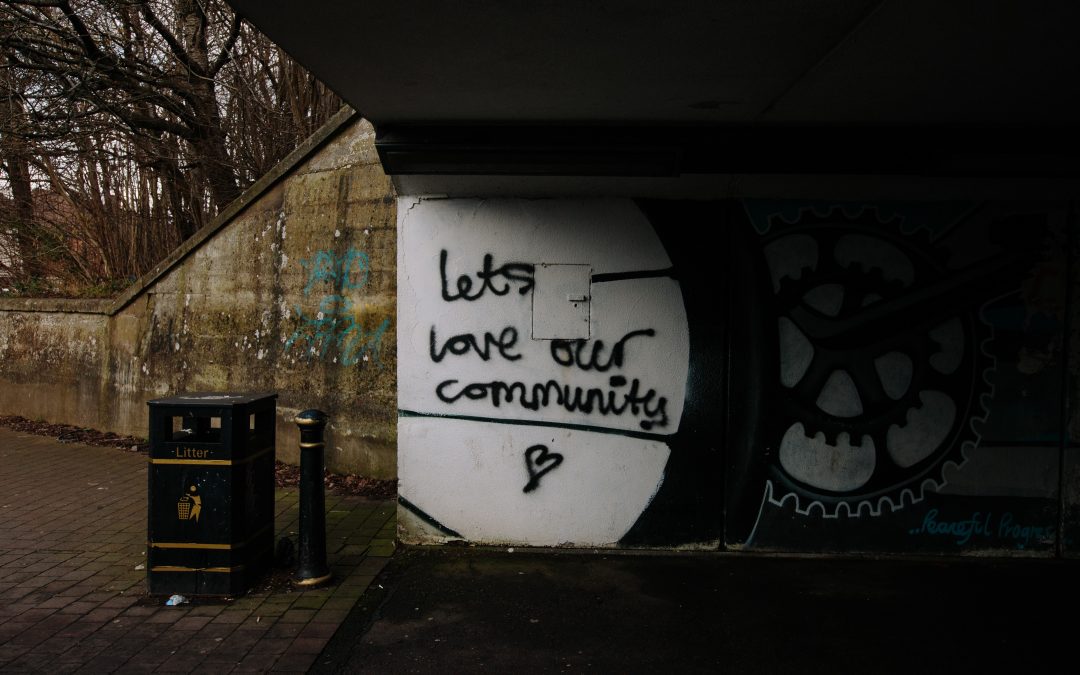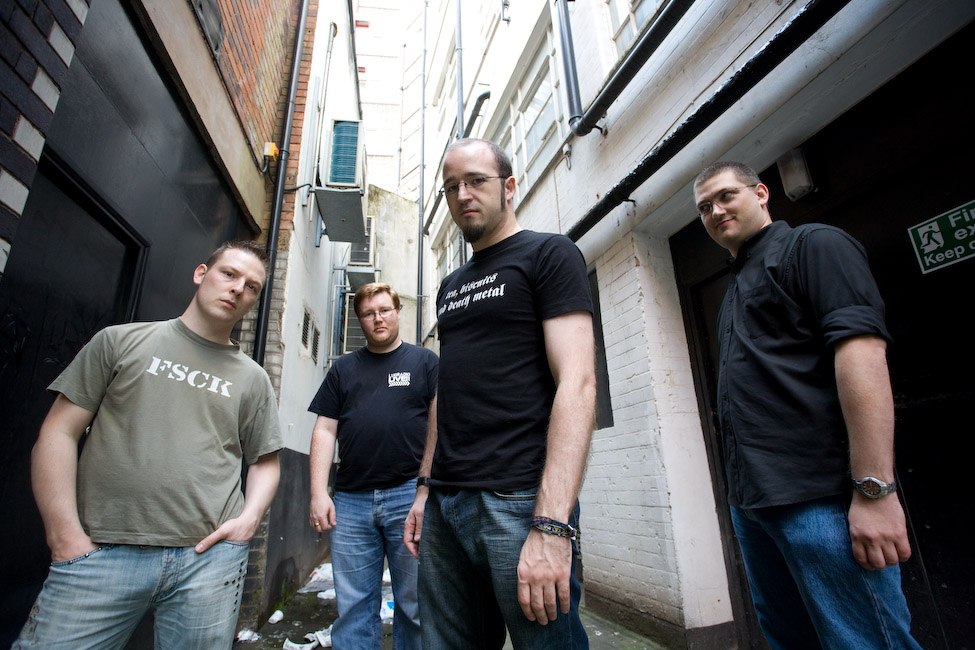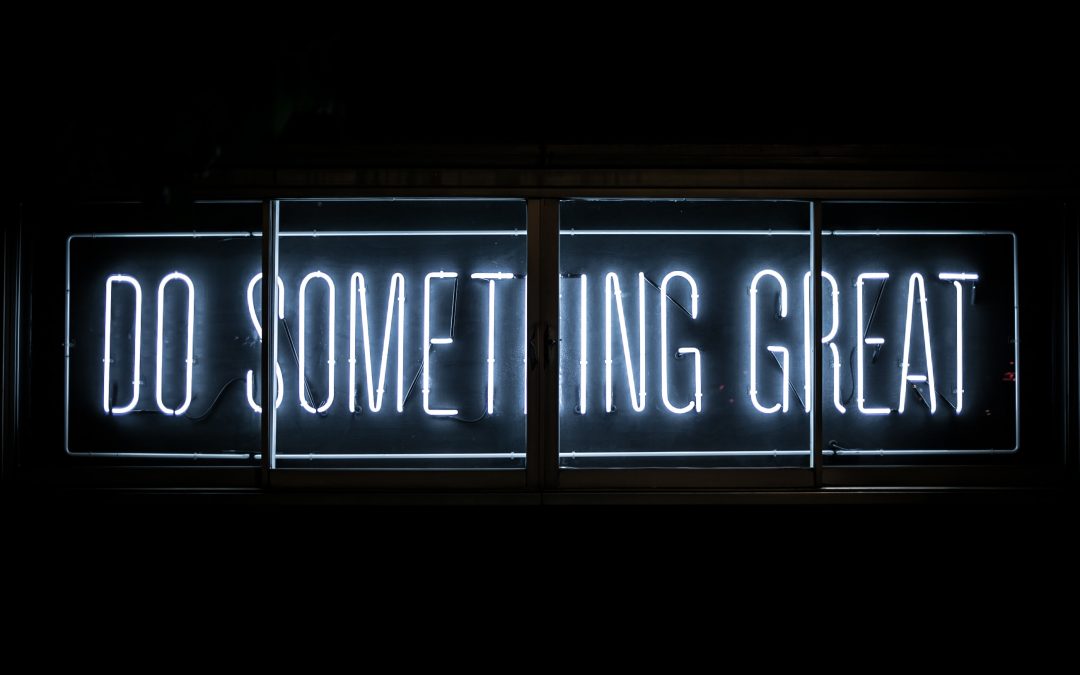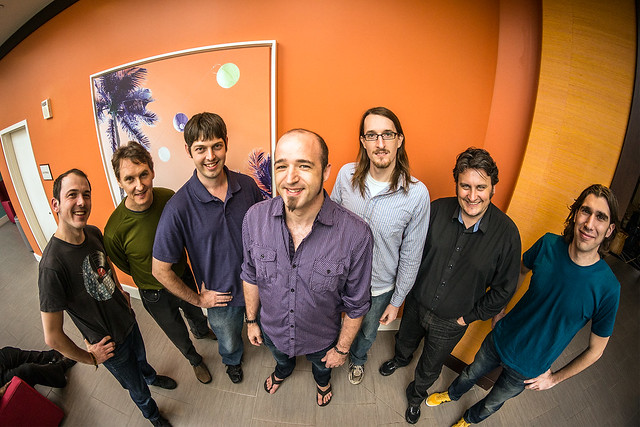
Bad Voltage Season 1 Episode 10 ‘Midnight Throne Travels’

Stuart Langridge, Jeremy Garcia, Bryan Lunduke, and myself discuss:
- Tech conferences — which ones are good, which ones are not, and why?
- Desktop machines versus laptops, and a review of Stuart’s new gorgeous desktop computer from PC Specialist
- Whistleblowing. In the light of the Snowden and Manning revelations, is whistleblowing a good idea, what’s available to protect whistleblowers from problems, and do we need to protect against those motivated by malice?
- Miguel de Icaza, head of Xamarin and past founder of the Gnome and Mono projects, talks about why he was singled out as a “traitor”, what he’s doing now, and how to best work in the open source world
- The winners in the Bad Voltage Selfie Competition! See this forum post for more details and all the entrants
- A Bad Voltage community update covering growth on our community forum, the formation of our gaming community, the IRC channel, the Bad Voltage app, Bad Voltage at SCALE12x, and interesting post-show discussions.
**Go and listen to or download the show [here](https://www.badvoltage.org/2014/02/27/1×10/)**.
Be sure to share your thoughts on the show, the topics in it, ideas for future topics, and just be a part of the awesome and growing community of voltheads at https://community.badvoltage.org/
Also, be sure to join in the [Bad Voltage Selfie Competition](https://community.badvoltage.org/t/the-bad-voltage-selfie-competition/134) to win some free O’Reilly books!

My Top 5 Dream Ubuntu Apps
So, today we [announced the Ubuntu App Showdown](https://developer.ubuntu.com/2014/02/announcing-the-latest-ubuntu-app-showdown-contest/) where you can build apps with the Ubuntu SDK and win some awesome prizes such as the Nexus 7 (2013) tablet and the Meizu MX3.
This got me thinking, which apps would a *love* to see on Ubuntu as part of the competition? Well, this is them, and hopefully they will be food for thought for some developers:
* **Email Client** – this would be an email client that looks and functions like [Discourse](https://www.discourse.org/). With it you could connect to an IMAP/Gmail account, see mail as threads, reply to mails, create and send new emails etc. Bonus points for supporting multiple accounts.
* **Social Media Client** – I haven’t found a Twitter and other social media client that works well for me. This one would show my timeline of tweets, have mentions on a different tab/screen, and support searches too. It would use the Online Accounts platform service to connect.
* **Google+ Client** – I would love to see a G+ client that integrates neatly into Ubuntu. It would need to browse my timeline, show notifications, let me reply to posts and add +1s, and browse communities.
* **Ubuntu LoCo Teams App** – an app where I can view the content from [loco.ubuntu.com](https://loco.ubuntu.com) such as browsing teams, seeing current and up-coming events, browse the blog, and include the content in the [Ubuntu Advocacy Kit](https://launchpad.net/uak). The power in this app would be looking like a beautiful app that any LoCo member can use to find cool events and do interesting things.
* **Riff Recorder** – an audio recording app where I can adjust the volume of the mic (for when I am in a room with lots of noise such as a rehearsal) and then record the audio at that level and have the ability to share it somewhere.
If anyone manages to build these apps, you will make me a very happy man. 🙂

Join the Ubuntu App Showdown and Win Prizes!

Today we [launched our next Ubuntu App Showdown](https://developer.ubuntu.com/2014/02/announcing-the-latest-ubuntu-app-showdown-contest/).
The idea is simple: you have six weeks to build an application with the [Ubuntu SDK](https://developer.ubuntu.com/apps/sdk/tutorials/installing-the-sdk/) that converges across both phone and tablet (which is simple). We have the following categories, each of which has a prize:
* QML – a native app written in QML (wins a Nexus 7 (2013) tablet).
* HTML5 – a native app written in HTML5 (wins a Nexus 7 (2013) tablet).
* Ported – an app that has been ported from another platform to Ubuntu and used the Ubuntu SDK (wins a Nexus 7 (2013) tablet).
We are also delighted to include an additional category with two prizes sponsored by [Meizu](https://en.meizu.com/):
* Chinese – an app that is written in either QML or HTML5 that would be of most interest to Chinese users, such as connecting to Chinese sites and services (2 x Meizu MX3s as prizes).
If you would like to get involved in the showdown, you can [find out all the details here](https://developer.ubuntu.com/2014/02/announcing-the-latest-ubuntu-app-showdown-contest/) or for our Chinese friends [here](https://developer.ubuntu.com/2014/02/%E6%96%B0%E4%B8%80%E5%B1%8Aubuntu-app%E5%A4%A7%E8%B5%9B%E5%BC%80%E5%A7%8B%E4%BA%86%EF%BC%81/).
## HTML5 Refinements
In preperation for the showdown we have also landed a number of significant improvements to HTML5 in the Ubuntu SDK. This includes:
* Our HTML5 technology has been fully revamped and now all works from a single container.
* A new single default template for creating your HTML5 app.
* Full access to device sensors via cordova.
* Full access to platform APIs via Javascript.
* [API documentation](https://developer.ubuntu.com/api/html5/sdk-14.04/).
* A brand new [HTML5 section on developer.ubuntu.com](https://developer.ubuntu.com/apps/html-5/) complete with new guides, tutorials, API docs, and more.
Remember, we award extra point for blogging about and sharing on social media about your app and how it is developing, so be sure to share your work! Good luck!

Ten Years of LugRadio, Zero Years of Bad Voltage

Ten years ago today we started [LugRadio](https://www.lugradio.org). For those of you who don’t know what LugRadio was, it was a podcast that some friends and I did that took a loose, fun, and eclectic look at Open Source and Linux. It developed a bit of a cult following to the point where 40+ people still hang out in the #lugradio channel today.
A am proud of what we achieved with LugRadio. Over 100 shows, 7 full-time presenters and countless guest presenters, 200+ hours of audio, 100+ guests, 2million+ downloads, multiple awards, 1000+ forums members, 40000+ forums posts, 6 live events in two countries, 5000+ emails to the show and an incredible community of people who surrounded the show, discussed it, got involved in some way, and otherwise gave us all immense enthusiasm to keep doing it.
I remember the day I started discussing the idea with [Stuart Langridge](https://www.kryogenix.org), stood in my kitchen in Wolverhampton after a Linux User Group meeting, and I don’t think either of us would have ever dreamed of how far it went.
If you want to get a good idea of the show, check out the excellent documentary about LugRadio called [Don’t Listen Alone](https://dontlistenalone.org/) by [Tony Whitmore](https://tonywhitmore.co.uk/).
Although LugRadio is now wedged in the historical record, the good news is that there is a new kid on the block in the form of [Bad Voltage](https://www.badvoltage.org).
Much is the same as with LugRadio (four presenters, show every two weeks, a focus on informative but entertaining content) but we don’t just limit the show to Linux and Open Source and we also cover technology, politics, gaming, and more. Check it out [here](https://www.badvoltage.org).

Ubuntu Development Update Presentation
This last weekend I was in LA at [SCALE12x](https://www.socallinuxexpo.org/) and gave a presentation providing a detailed update of much of the work going on as we build a convergent Ubuntu. As I have mentioned before, there is lots of other foundational pieces being built as part of this work (app insulation, SDK, click packages, [developer.ubuntu.com](https://developer.ubuntu.com), platform services etc), and this presentation covered where we stand today in this work.
Obviously a lot more of you couldn’t be at SCALE than couldn’t, so I have recorded the presentation to share online. You can see it below or [click here to watch it](https://www.youtube.com/watch?v=XsyDOobeNnM). Enjoy!

Today’s Ubuntu News
I am sure that you have all seen the [exciting news](https://insights.ubuntu.com/news/canonical-announces-first-partners-to-ship-ubuntu-phones-around-the-globe/) about the first partners to ship Ubuntu smart-phones. For those who haven’t seen it:
> 19th February 2014, London: Canonical today announces it has signed agreements with mobile device manufacturers bq (www.bqreaders.com) (Spain) and Meizu (China) to bring Ubuntu smartphones to consumers globally. Canonical is working with these partners to ship the first Ubuntu devices on the latest hardware in 2014. Ubuntu has also received significant support from the world’s biggest carriers, some of which intend to work with OEM partners to bring phones to market this year.
> Development programmes have begun with the partners to provide smartphones with a superior user experience on mid to high end hardware for consumers around the world. Devices will be available to buy online through bq, Meizu and at Ubuntu.com.
Today was a hectic day, starting with [our Ubuntu town hall hangout](https://www.youtube.com/watch?v=gGG_GHYzSLs) and spent in a wealth of meetings. As such I haven’t had a chance to write a blog post about this announcement yet, but I wanted to throw something out on my blog before I go to bed.
Naturally this is tremendously exciting news. As I [posted about before](https://archivedblog.jonobacon.com/2014/01/02/ubuntu-in-2014/), 2013 was an intense year as we not only started building our convergent platform, but also the many inter-connecting pieces too such as our SDK, image based updates, Mir, app developer platform, platform services, app insulation, developer portal, and more. As a result of this work, since May 2013 I have been running Ubuntu full-time on my phone and we are in great shape.
In the last year my team has been heavily focused on building a new community; our Ubuntu app developer community. I have directed many resources in my team here for a number of reasons that I believe are of strategic importance to the future health, growth, and opportunity of Ubuntu and our community.
Firstly, we want Ubuntu to instill a level of simplicity, elegance, and power that is not just present in the default platform, dash, scopes, and services, but also emphasized across the apps that users want to use. This means kickstarting a new generation of apps inspired by the design and development principles that are driving our convergence vision and using a simple and powerful app developer platform so devs can go from idea to app store as quickly and easily as possible.
Secondly, I personally believe that apps are key to our success. I suspect that OEMs and carriers will be even more motivated by a platform with great apps and a powerful developer platform, I believe that users will be attracted to a platform with great apps, and I believe that developers will want to build apps for a platform that is both fun to use and develop for.
Thirdly, I believe there is a huge opportunity to refine and innovate in so many areas of our app developer platform and community. Everything from the tooling to knowledge and support to publishing can be optimized and refined to build the very best developer platform.
As such, in my peanut-sized brain the apps are where much of my team’s strategy should be focused.
I am delighted by the progress we are making here. As I [wrote about a few days ago](https://archivedblog.jonobacon.com/2014/02/13/forward-momentum-in-the-ubuntu-app-developer-platform/), there is lots of wonderful work going on and fresh features and improvements landing soon. Our Ubuntu app developer platform is growing in leaps and bounds and I am really proud of the efforts of so many people.
Now, while I am proud of where we are today, I am not going to compromise until we have the best developer platform in the world.
So, how does this all relate to the bq and Meizu news?
Well, this news starts the ball rolling on the first set of devices that are going to be hitting the market. This in-turn will result in a general consumer audience starting to use Ubuntu on smart-phones. While today we have thousands of developers flashing their phones with Ubuntu and eagerly writing apps and using other people’s apps, the injection of general consumers will build even more motivation and momentum for our app developers to create apps they are truly proud of and that will be of interest to a new generaton of Ubuntu smart-phone users. As a musician I can tell you that having an audience makes everything that much more worthwhile, and I think it is the same our developers who are about to get a new audience growing around them.
These are tremendously exciting times. Our vision is ambitious but every day the momentum grows and I delighted you are all joining the journey with us. Let’s do this, friends!

Bad Voltage Season 1 Episode 9 ‘The Starting Pitstop’ Is Out

Stuart Langridge, Jeremy Garcia, Bryan Lunduke, and myself wend our troublesome ways down the road of:
* We weigh in on the upstart/systemd brouhaha in Debian and discuss what happened, why it happened, and whether it was a good thing or not.
* Bryan reviews the Lenovo Miix 2 tablet and we get into the nitty gritty of what you can do with it.
* We take a trip down memory lane about how we each got started with Linux, which distributions we used, and who helped us get on our journey.
* We take a recap and look at community feedback about guns, 3D printing, predictions, Bad Voltage gaming, the Bad Voltage Selfie Competition and more, all making an appearance.
**Go and listen or download it [here](https://www.badvoltage.org/2014/02/13/1×09/)**
Be sure to go and share your feedback, ideas, and other comments [on the community discussion thread for this show](https://community.badvoltage.org/t/1×09-the-starting-pitstop/162)!
Also, be sure to join in the [Bad Voltage Selfie Competition](https://community.badvoltage.org/t/the-bad-voltage-selfie-competition/134) to win some free O’Reilly books!
Finally, many thanks to [Microsoft](https://www.microsoft.com) for helping us get the [Bad Voltage Community Forum](https://community.badvoltage.org) up and running, and thanks to [A2 Hosting](https://www.a2hosting.com) for now hosting it. Thanks also to [Bytemark](https://www.bytemark.co.uk) for their long-standing support and helping us actually ship shows. 🙂

Forward Momentum in the Ubuntu App Developer Platform
Last week I was in Orlando sprinting with my team as well as the platform, SDK, and security teams and some desktop and design folks. As usual after a sprint, I have been slammed catching up with email, but I wanted to provide a summary of some work going that you can expect to see soon in the Ubuntu app developer platform.
## HTML5
In the last few months we have been working to refine our HTML5 support in the Ubuntu SDK.
Today we have full HTML5 support in the SDK but we are working to make HTML5 apps more integrated than ever. This work will land in the next week and will include the following improvements:
* Consolidating everything into a single template and container. This means that when you create a new app in the SDK you have a single template to get started with that runs in a single container.
* Updating our Cordova support to access all the devices and sensors on the device (e.g. camera, accelerometer).
* Adding full Ubuntu platform API access via Javascript. With this you will be able to access Online Accounts, the Content Hub, the App Lifecycle support etc and more.
* Adding a series of refinements to the look and feel of the HTML5 Ubuntu components. Before the components looked a little different to the QML ones and we are closing the loop.
* Full API documentation for the Cordova and Platform APIs as well as a number of tutorials for getting started with HTML5.
* On a side note, there has been some tremendous speed improvements in Oxide which will benefit all HTML5 apps. Thanks to Chris Coulson for his efforts here.
With these refinements you will be able use the Ubuntu SDK to create a new HTML5 app from a single template, follow a tutorial to make a truly native look and feel HTML5 app utilizing the Cordova and Platform APIs, then click one button to generate a click package and fill in a simple form and get your app in the store.
I want to offer many thanks to David Barth’s team for being so responsive when I asked them to refine our HTML5 support ready for MWC. They have worked tirelessly, and thanks also to Daniel Holbach for coordinating the many moving pieces here.
## SDK
Our SDK is the jewel in the crown of our app development story. Our goal is that the SDK gets you on your Ubuntu app development adventure and provides all the tools you need to be creative and productive.
Fortunately there are a number of improvements coming here too. This includes:
* We will be including a full emulator. This makes it easy for those of you without a device to test that your app will work well within the context of Ubuntu for smartphones or tablets. This is just a click away in the SDK.
* We are also making a series of user interface refinements to simplify how the SDK works overall. This will include uncluttering some parts of the UI as well as tidying up some of the Ubuntu-specific pieces.
* Device support has been enhanced. This makes it easier than ever to run your app on your Ubuntu phone or tablet with just a click.
* We have looked at some of the common issues people have experienced when publishing their apps to the store and included automatic checks in the SDK to notify the developer before they submit them to the store. This will speed up the submissions process.
* Support for “fat” packages is being added. This means you can ship cross-compiled pieces with your app (e.g. a C++ plugin).
* Last but certainly not least, we are going to be adding preliminary support for Go and QML to the Ubuntu SDK in the next month. We want our app developers to be able to harness Go and with the excellent Go/QML work Gustavo has done, we will be landing this soon.
As ever, you can download the latest Ubuntu SDK by following the instructions on [developer.ubuntu.com](https://developer.ubuntu.com/). Thanks to Zoltan and his team for his efforts
## developer.ubuntu.com
An awesome SDK and a fantastic platform is only as good as the people who know how to use it. With this in mind we are continuing to expand and improve [developer.ubuntu.com](https://developer.ubuntu.com) to be a world-class developer portal.
With this we have many pieces coming:
* A refinement of the navigational structure of the site to make it easier to get around for new users.
* Our refined HTML5 support will also get full Cordova and Platform API documentation on the site. Michael Hall did a tremendous job integrating Ubuntu and upstream API docs in the same site with a single search engine.
* A library of *primers* that explain how key parts of our platform work (e.g. Online Accounts, Content Hub, App Lifecycle, App Insulation etc). This will help developers understand how to utilize those parts of the platform.
* Refining our overview pages to explain how the platform works, what is in the SDK etc.
* A refreshed set of cookbook questions, all sourced from our standard support resource, [Ask Ubuntu](https://askubuntu.com/).
* We will also be announcing *Ubuntu Pioneers* soon. I don’t want to spoil the surprise, so more on this later. 🙂
Thanks to David, Michael, and Kyle on my team for all of their wonderful efforts here.
## Desktop Integration
In the Ubuntu 14.04 cycle we are also making some enhancements to how Ubuntu SDK apps can run on the desktop.
As many of you will know we are planning on shipping a preview session of Unity8 running on Mir. This means that you can open Unity8 from the normal Ubuntu login screen so you can play with it and test it. This will not look like the desktop; that work is on-going to converge Unity 8 into the desktop form-factor and will come later. It will however provide a base in which developers can try the new codebase and hack on it to converge it to the desktop more quickly. We are refreshing our Unity8 developer docs to make this on-ramp easier.
We are also going to make some changes to make running Ubuntu SDK apps on Unity 7 more comfortable. This will include things such as displaying scrollbars, right-click menus etc. More on this will be confirmed as we get closer to release.
All in all, lots of exciting work going on. We are at the beginning of a new revolution in Ubuntu where beautifully designed, integrated, and powerful apps can drive a new generation of Ubuntu, all build on the principles of Open Source, collaboration, and community.

The Next Ubuntu Developer Summit: 11-13 March 2014
The [Ubuntu Developer Summit](https://uds.ubuntu.com) is the primary place where we discuss, debate, and plan the future of Ubuntu. The entire event takes place online, is open and accessible to all, and every session is recorded so everyone can see how decisions are made. It is a useful, fun, and rewarding event to join.
My apologies for the delay in announcing the next event. The last few months have been somewhat hectic and we wanted to wait for some confirmed conference/sprint dates across Ubuntu Engineering and cross-check those with our release schedule before committing to final dates so we can ensure as many people are there as possible.
I can now confirm that our next Ubuntu Developer Summit will take place from **Tues 11th March 2014 – Thurs 13th March 2014**. I wanted to let you all know ASAP so you can get it in your calendars. [summit.ubuntu.com](https://summit.ubuntu.com/uds-1403/) is updated and ready to start having sessions added or proposed.
This next UDS will look and feel much like the last one; the same tracks and format. The feedback we have received from the last UDS suggests that the changes we made were well received. As ever, your feedback is always welcome.
If you want to have a session at UDS, please see [this guide](https://uds.ubuntu.com/getinvolved/propose-a-session/) for how to propose it. As usual, feel free to ask for help from myself or Michael Hall, David Planella, or Daniel Holbach,

An Exciting Future
We are growing a world-class community and app developer eco-system, fuelled by Open Source and open collaboration. We are putting the core pieces in place and I am delighted to be working with such a wonderful team:

*(L-R) Daniel Holbach, Kyle Nitzsche, Michael Hall, This Guy, Nicholas Skaggs, Alan Pope, David Planella*
